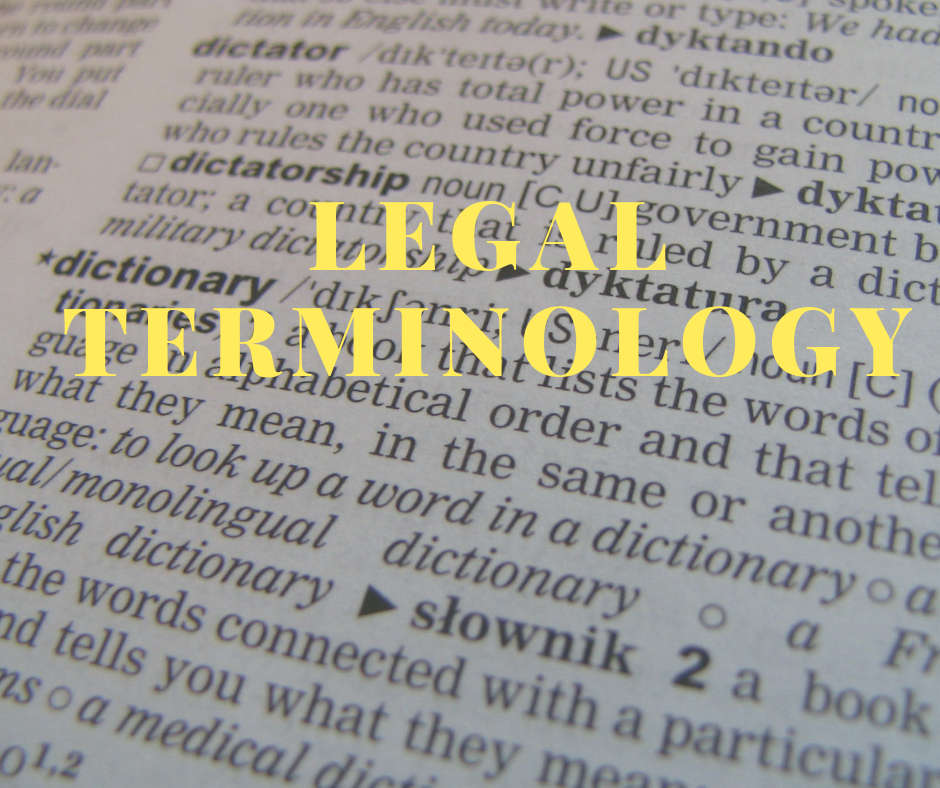We have clients that ask about the meaning of different terms that are used in commonly in family law as well as terms that we use as a personal injury lawyer. As a top Charlotte family law firm, we are here to provide the best resources for our clientele. Please enjoy this list of commonly used legal terms in family law.
Advocate: a person who understands your circumstances and provides support on your behalf
Adultery: voluntary sexual intercourse between someone who is married and another person other than their spouse
Alienation of affection: a lawsuit brought against a third party for interfering with a legal marriage causing emotional harm and the disintegration of the marriage
Alimony: a legal obligation to provide financial support to a spouse after a divorce
Alimony lawyer: also called a spousal support attorney, represents you when you’re negotiating the terms of alimony. ( Cox Law is a top Charlotte Alimony Lawyer)
Child maintenance: also known as child support; a court-ordered financial payment to support the day-to-day expenses of raising the child
Child custody lawyer: A child custody lawyer can aid individuals work out custody, either by arrangement or in court. The custodial parent or guardian (the one the child lives with) earns the legal right to make decisions regarding the child’s lifestyle, welfare, as well as education
Child support: court-ordered financial support that goes to the parent who has custody of the child/children
Compensation: a monetary award meant to replace or remedy the loss or injury caused to a person
Contributory Negligence: when the action of someone is considered to have been irresponsible and cause for the unwanted outcome
Custody: the protective care or guardianship of someone or something. There are several types of custody.
Defendant: the individual, company, or institution accused in a court of law
Discovery: a pre-trial procedure to obtain evidence and other relative information to present at trial
Divorce Lawyer: A divorce lawyer is an attorney that specializes in family law, and has experience in issues of divorce, legal separation, marriage annulment, child custody as well as visitation, and child support negotiation
Earning potential: the top salary a person should be able to earn in their chosen profession
Economic damages: compensation for actual financial loss, such as wages lost or medical bills
Emotional distress: mental anguish such as anxiety, depression, grief, humiliation, or apathy.
Family law: the area of legal practice that focuses on family relationships such as child custody, child support and adoption
Family lawyer: a lawyer who represents a client in a divorce and the issues associated with divorce
Gross monthly income: your total income before any deductions such as taxes, healthcare, etc.
Hearing: the opportunity to make one’s case at trial in a court of law
Judge: a public official appointed to decide cases in a court of law
Litigation: the process of presenting your case in court
Marriage: the legal recognition of a union between two people
Matter: a situation or topic of discussion
Mediation: both parties work with a mediator, or third party individual trained in mediation, to come to an agreement on all aspects of the separation/divorce
Medical malpractice: when a patient is harmed because a hospital or healthcare professional’s negligence
Motion: a written request or proposal provided to a court in order to obtain an official decision or ruling
Negligence: failure to use reasonable care, resulting in injury or damage
Negotiation: the process of discussion used to reach an agreement between all necessary parties
No-Fault Divorce: a divorce that does not require proof of fault or wrongdoing by either party
Non-economic damages: also known as general damages; are damages such as pain and suffering, emotional distress, disability or disfigurement
Pain and suffering: the legal term referring to a multitude of injuries a person may be suffering as a result of someone or something. This includes physical and emotional injury.
Personal injury: the legal term for injury to a person’s body, emotions or mind as opposed to property
Plaintiff: the person who brings a case against another person in a court of law
Prenuptial Agreement: a contract that is entered into prior to marriage, civil union, or any agreement prior to the main agreement by two people intending to marry or contract with each other for a long-term relationship.
Primary custody: when there is shared custody, the person who has the child the majority of the time has primary custody
Pleading: a formal statement of claims or defenses in a court of law
Post-separation support: temporary alimony meant for the interim until the full terms of alimony have been decided
Product liability: the legal liability a manufacturer has for their products, especially if it causes injury
Property Settlement: how assets are divided in a divorce
Sole custody: legal guardianship of a child by one parent
Separation Agreement: an agreement on all issues that need to be addressed, like child custody, the division of all assets, etc., before getting divorced
Split custody: an arrangement where the children are split between the parents (Often negotiated with a Charlotte child custody lawyer)
Spouse: also known as your husband, wife, mate, partner
Spousal support: also called alimony which is a legal obligation to provide financial support to a spouse after a divorce
Statutes of Limitations: laws that determine the maximum amount of time of deadline that legal action can be taken after a specific event has occurred.
Trial lawyer: a lawyer that represents a client and argues their case in a court of law
Visitation rights: permission by the court for the parent without custody to visit their child. This can be extended to grandparents
Wrongful death: a personal injury lawsuit brought against an individual, company or institution being accused of causing death to a person because of negligence or harmful intent




